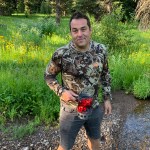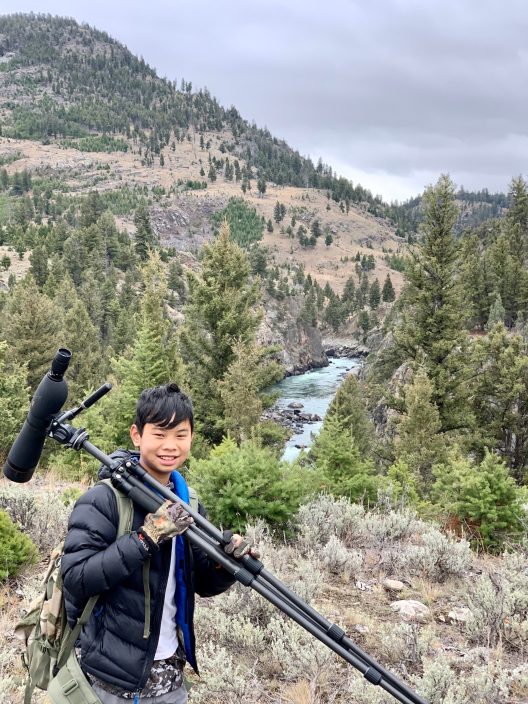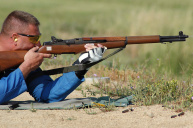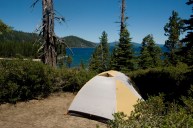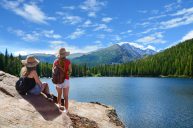From my house in Southwest Montana, I can jump in my truck and be at two different entrances to Yellowstone National Park in less than an hour and a half. Between weekend trips with my kids and serving as a park tour guide for visiting family and friends, I've done a lot of Yellowstone camping. I've camped near creeks where I could cast to rising cutthroat trout in the long summer twilight and in meadows where the screams of bugling bull elk woke us before the sun. I've also camped in places that buzzed with so many people and vehicles that they seemed more like fairgrounds. I've driven from campground to campground, looking in vain for any site that wasn't already taken or reserved.
Camping in Yellowstone requires a bit of thought and planning, especially in the hectic summer months. Many campgrounds are first-come, first-served, so you have to show up early with faith (and a backup plan). You can reserve a campsite at spots, but often you have to do it months in advance, on the day reservations are released. Also, the park is vast, and if you're not careful, you can end up camped far from the areas you plan to visit.
Through trial and plenty of error, I've learned how to find some great places to pitch my tent, both inside and out of the park. These are my favorite campgrounds in each area of Yellowstone. Still, before planning a trip, it helps to understand the general overview of camping in Yellowstone.
Where to Camp in Yellowstone NP
There are many campgrounds in Yellowstone National Park, but they can vary widely. Some are big, with large sites, hookups for RVs, and showers. Some are smaller, only suitable for tent campers, and feel far from civilization. Many don't open until mid-June and close by mid-September.
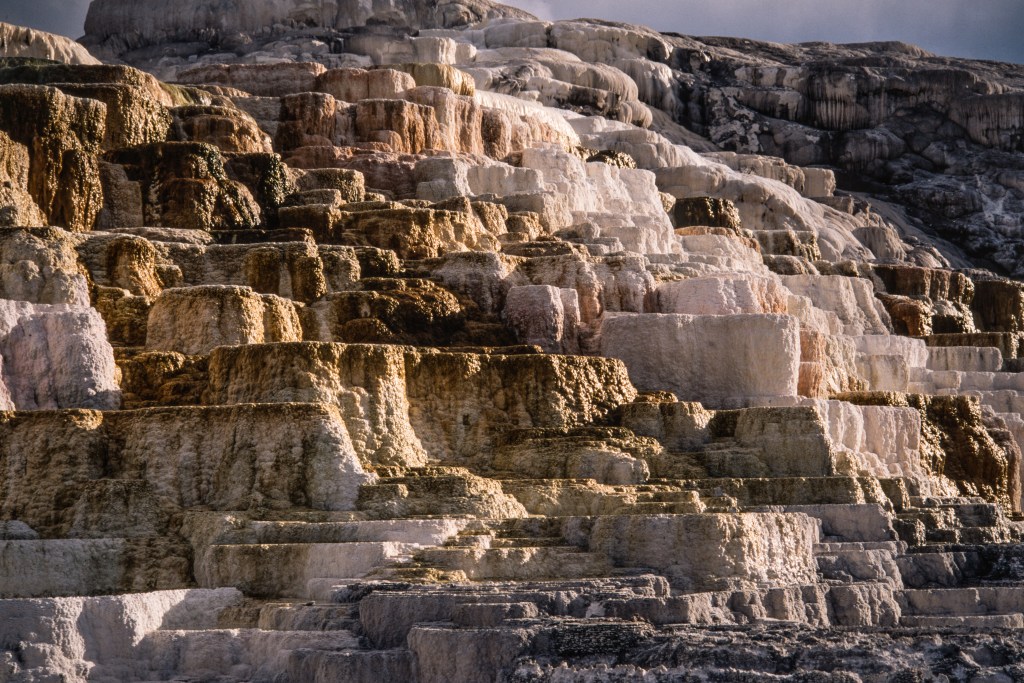
Photo by: Jon G. Fuller, Jr./VW PICS/Universal Images Group via Getty Images
To reserve campsites in Yellowstone, you need to be familiar with two websites, recreation.gov and yellowstonenationalparklodges.com. Both are great resources for campground information, available dates, and other info. Many campgrounds are first-come, first-served, so the earlier you show up, the better your chance of snagging a campsite for the day. If Yellowstone camping means backcountry camping to you, you'll have to get a special permit and stay at designated sites.
However, some of the best Yellowstone camping is found outside the park. Yellowstone is the center of millions of acres of national forest and other public lands, so there are forest service campgrounds near every entrance to the park. Factor in dispersed camping (in the national forest but outside of campgrounds), and there's lots of room to roam. Also, each gateway community has a few private campgrounds as well. You'll have a lot more options and escape some of the crowd if you're willing to broaden your search beyond the borders of Yellowstone.
Most people tend to make sense of Yellowstone by the park's entrances, so that's how I've grouped my recommended campgrounds. Each entry has its own feel and unique experiences to check out, and incredible places to wake up.
North Entrance, Gardiner, MT
Follow the Yellowstone River upstream, south through Montana's Paradise Valley, and you'll come to the North Entrance and the historic town of Gardiner. This is the only entrance open to automobiles year-round, and here is where you'll find the historic Roosevelt Arch.
I like this entrance a lot because it gives you access to places that show off Yellowstone's best. Mammoth Hotsprings, the massive terrace of bubbling, belching, stinking pools and springs, and rocks in vivid colors near the entrance. I always end up in the Lamar River Valley, a wild and beautiful place that is one of the best places in the park for wildlife viewing, especially in the spring and fall. One afternoon in the Lamar, I spotted countless herds of bison, elk, a black bear, a grizzly bear, and a pack of wolves.
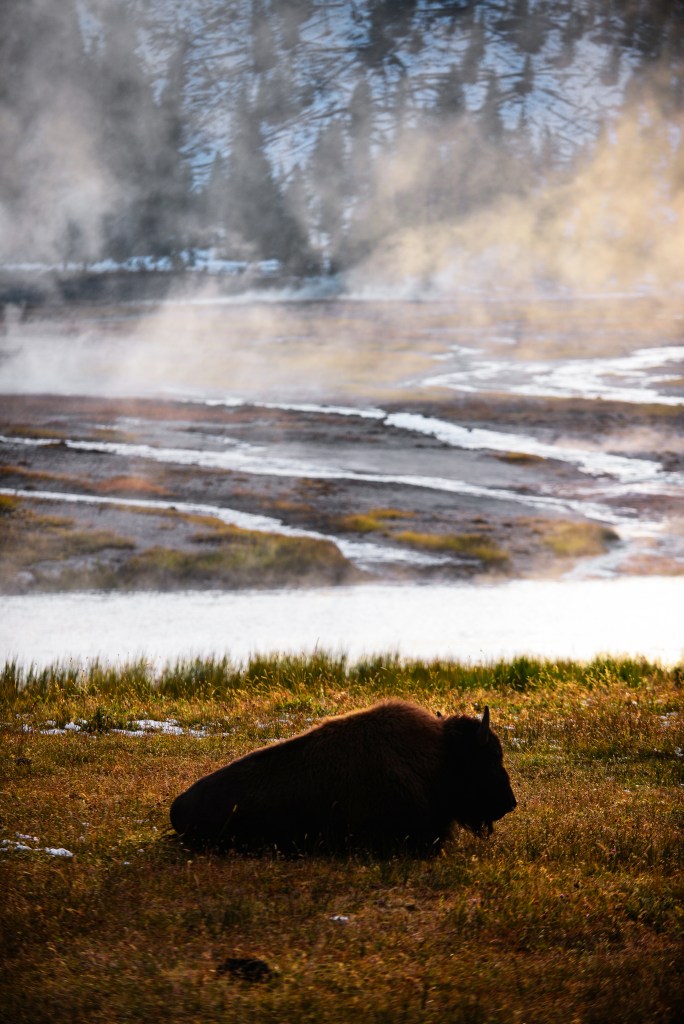
Photo by: Nano Calvo/VWPics/Universal Images Group via Getty Images
Park Campgrounds
Mammoth Campground. This campground, open year-round, is just down the hill from the Mammoth. It has 85 sites, most that can fit an RV, and 51 tent pads. It's one of few campgrounds open year-round. First come, first served. Because it's near the entrance, there will be plenty of traffic going by during busy times, so not the best for peace and quiet. For convenience, it's great. It's a short walk to Mammoth.
- Must do: Because it's close to the Boiling River when my son and I camp here, we always have to go for a soak. The boiling river comes out of the ground at 115-140 degrees Fahrenheit. It then runs into the colder Gardner River, forming a series of lovely pools that are just right for soaking. No changing facilities, so go with a plan.
Slough Creek. This campground is in the heart of the Lamar valley, so it's perfect for wildlife viewing. I once spent an afternoon sitting on an overlook, a five-minute hike from this campground, watching a pack of wolves nap, laze around, and play through my spotting scope. Below me, bison grazed along the creek. Slough Creek is what makes this campground special for an angler like me. The stream is full of cutthroats and a great place to fish. It is, however, no secret, so it can be crowded and the trout finicky. It's open mid-June through mid-October, has 23 sites and vault toilets, and is first-come, first-served.
- Must do: Follow Slough creek upstream from the campground, passing through meadows, aspen groves, and lodgepole pines. Bring your fly rod, rigged with a hopper.
Outside the park camping
Eagle Creek Campground. A forest service campground 2 miles northeast of Gardiner. 16 sites, vault toilets, picnic tables, and horse corrals.
Custer Gallatin National Forest dispersed camping. I have a spot where I camp that's by a spring, in a meadow of wildflowers, a quick drive from the park and yet far from most other campers. (I'm not telling you where it is-you'll be able to find one of your own). However, this is a severe grizzly country, so you have to know bear safety.
Yellowstone RV Park and Campground. A private campground with 48 sites right in Gardiner.
Northeast entrance, Cook City, MT
It takes some work to get into the park this way, so it is the least crowded entrance. Head west, and you're quickly in the heart of the Lamar Valley. Head south at Tower Junction, and you'll find Canyon Village and the breathtaking Grand Canyon of the Yellowstone. The Slough Creek Campground is a good option from this entrance too.
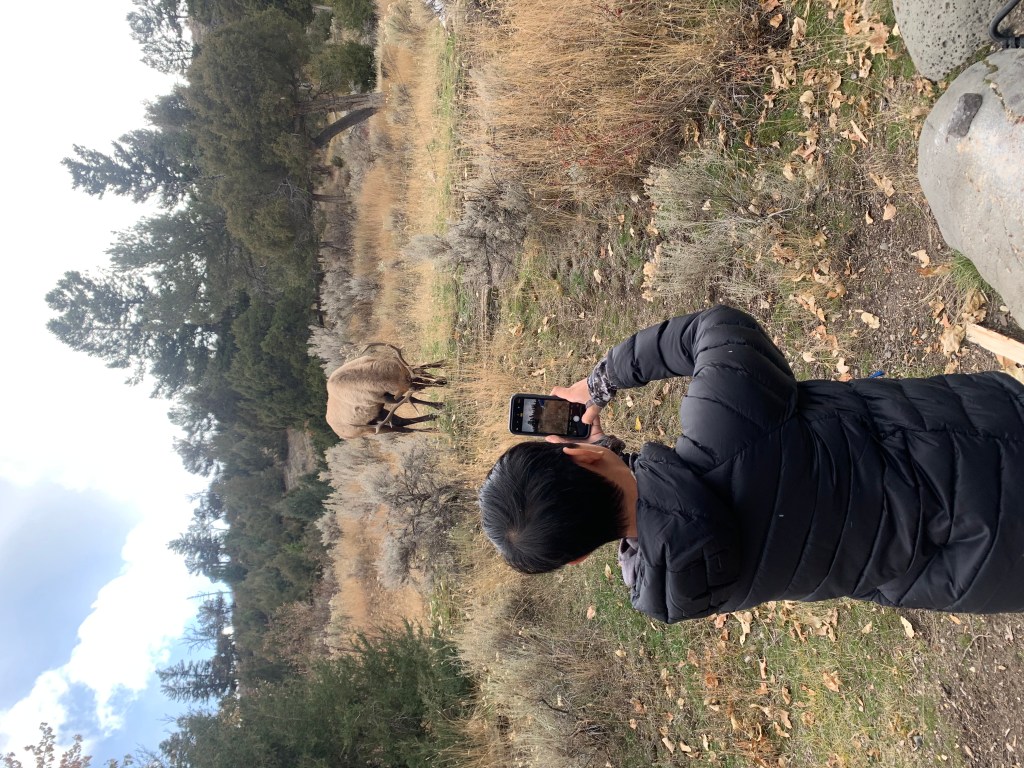
Photo by Anthony Licata
Park Campgrounds
Pebble Creek. This smaller campground is remote and perfect if you want to get away from the crowds. There are 27 sites, and you can reserve them. The initial release of reservations is available 6 months in advance. The second batch of reservations is released 2 weeks in advance. It's open from mid-June through mid-September and only has a few spots for RVs and vault toilets.
- Must-do: Hike the Hellroaring Trail. This one is of my son's favorite hiking trails. The trailhead is on the Mammoth-Tower Road and runs north, all the way to the park's boundary. The trail drops through sage and timber to where Hellroaring Creek crashes into the Yellowstone River. Stand above on the Yellowstone River suspension bridge and check out the high rocky walls of the Black Canyon.
Camping outside of the park
Soda Butte, National Forest Campground. This wild campground outside of Cook City has 20 sites. However, there are so many grizzlies in the area that the campground is "hard-sided camping" only. Hence, it's a good thing that all sites accommodate RVs.
Perry's RV Park and Campground, Red Lodge. This well-run campground outside of Red Lodge has 44 RV and 15 tent sites, all with utility hookups.
West entrance, West Yellowstone, MT
This is the other entrance that I use a lot, and I'm not alone. This is the busiest entrance during the summer. In the winter, it's open to snow coaches and snowmobiles, and the region outside the park is a snowmobilers paradise. It's busy in the high season because it takes you directly to some of the park's most visited sights: old faithful and geyser basin.
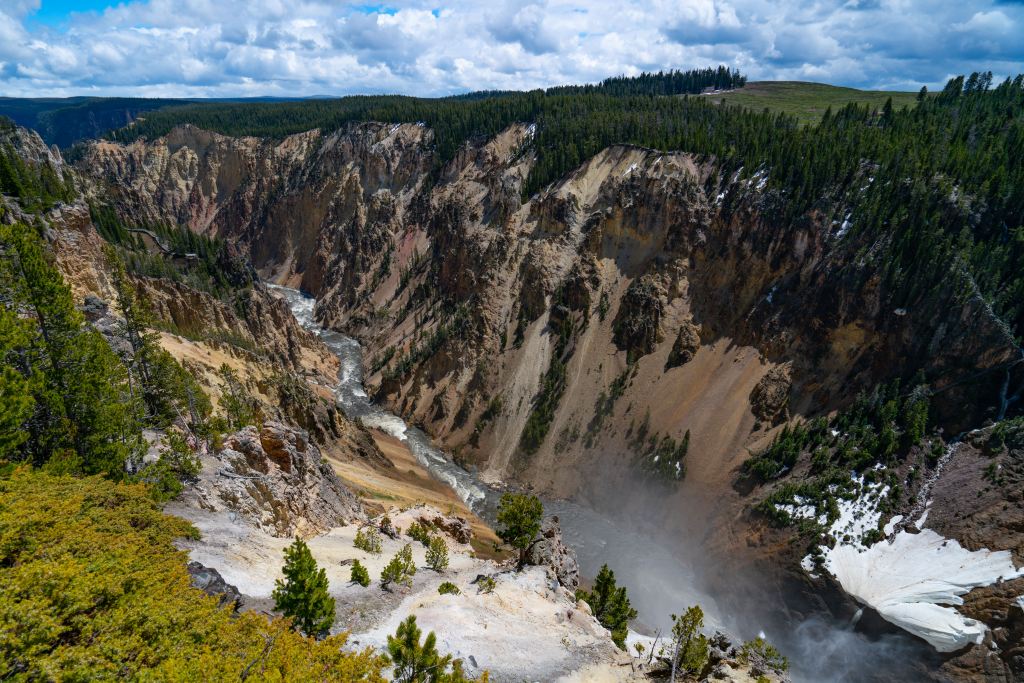
Photo by AaronP/Bauer-Griffin/GC Images
Park campground
Madison campground. You'll find this spot where the Firehole and Gibbon rivers combine to form the Madison, about 16 miles north of Old Faithful. It's a big campground, 278 sites spread through a flat meadow, surrounded by wildflowers. No reservations.
- Must do: The Firehole River loop. This drive takes you through a bunch of bubbling, steaming geysers. From two bridges, you have great views of the hot pools of Upper Geyser Basin-those brightly colored pools of scalding water. You've seen them.
Outside of park camping
The town of West Yellowstone is full of campgrounds and RV Parks. When my buddy comes West towing his toy hauler, he stays at the Yellowstone Grizzly RV Park.
South entrance, Flagg, WY, and East entrance, Cody, WY
I'm putting these two together because they access the same general region of the park, the Canyon and Lake Region. The south comes from Grand Teton, through Flagg Ranch, and the east comes from the cool cowboy town of Cody, Wyoming. If you're here to fish or play on the water, you'll want to camp on Yellowstone Lake.
Canyon Campground. This campground is in the middle of everything, only a mile from the Grand Canyon of the Yellowstone. 270 sites, bathrooms with running water, and plenty of room for RVs.
On Yellowstone Lake: At the start of the Yellowstone River, Fishing Bridge RV Park is popular with anglers and boaters. It has a lot of sites, flush toilets, and hookups.
- Must-do: Hike the North Rim of the Grand Canyon of the Yellowstone. You'll have plenty of company on the trail, but the canyon views are worth it. The trail is 6 miles, and you can start on either end.
Outside of park camping
Cody KOA Holiday. Cody is a great town, worth knocking around for a night or two. That means the luxuries of this lovely, family-friendly KOA might be what you want and need after a long day in Yellowstone.
Anthony Licata is the editor-in-chief of Wide Open Roads. He's been traveling and writing through the US for many years. He lives with his wife and two children in Bozeman, Montana.
